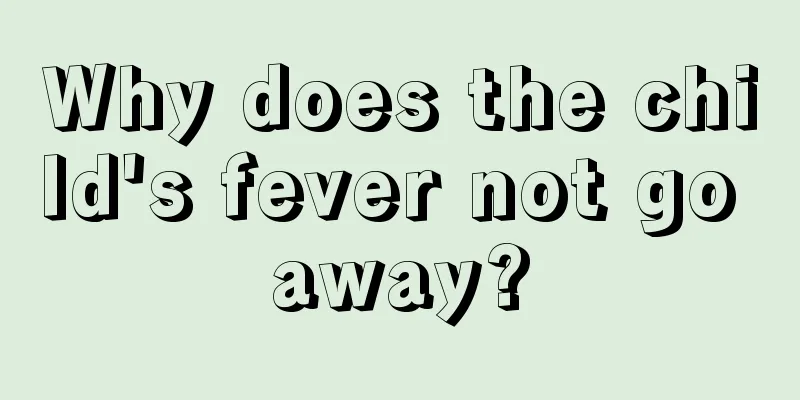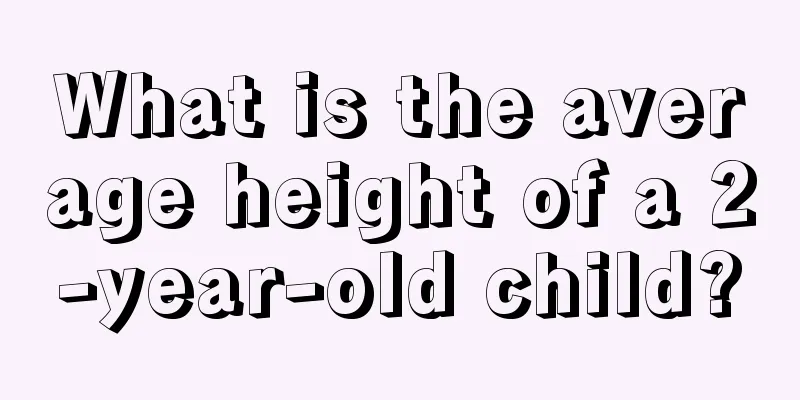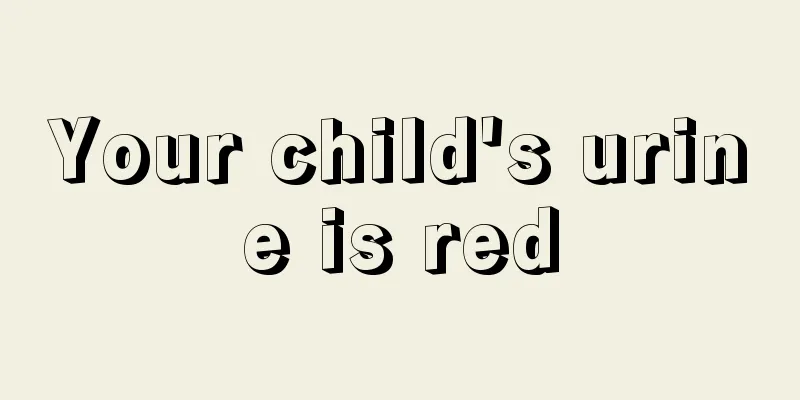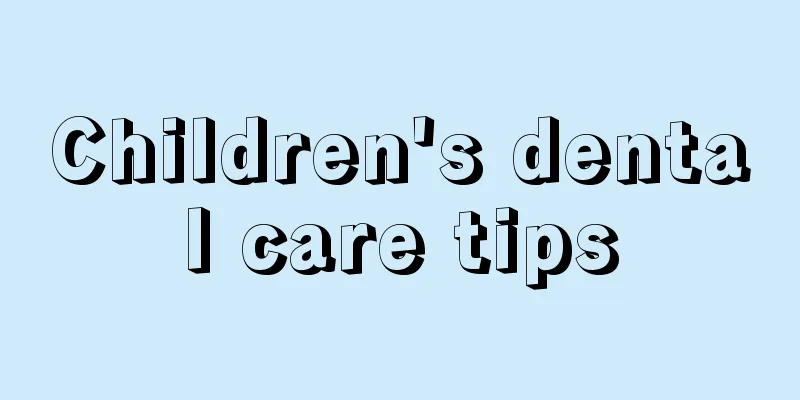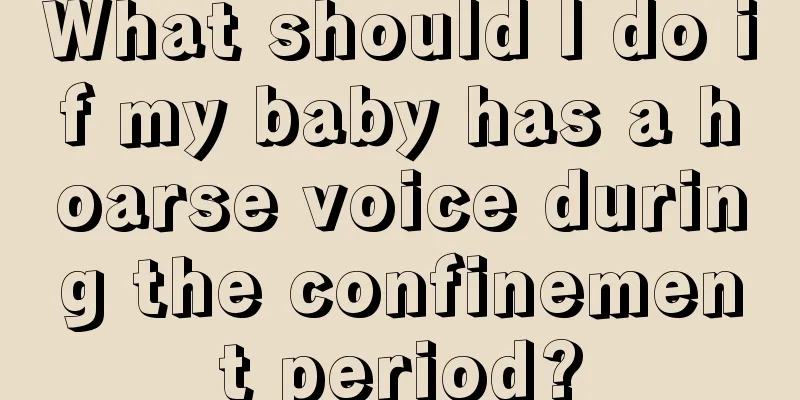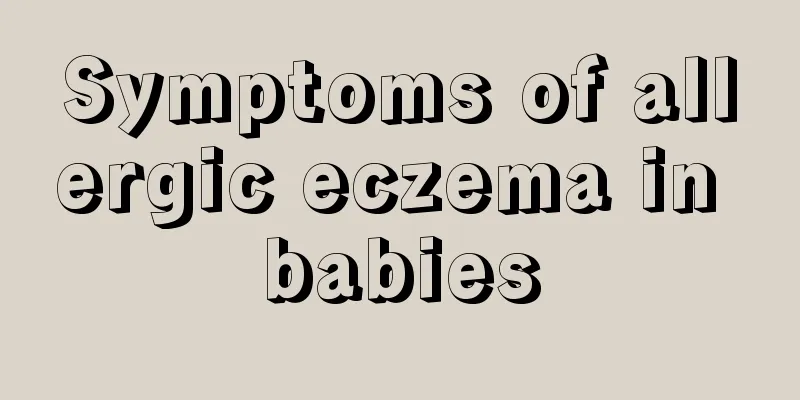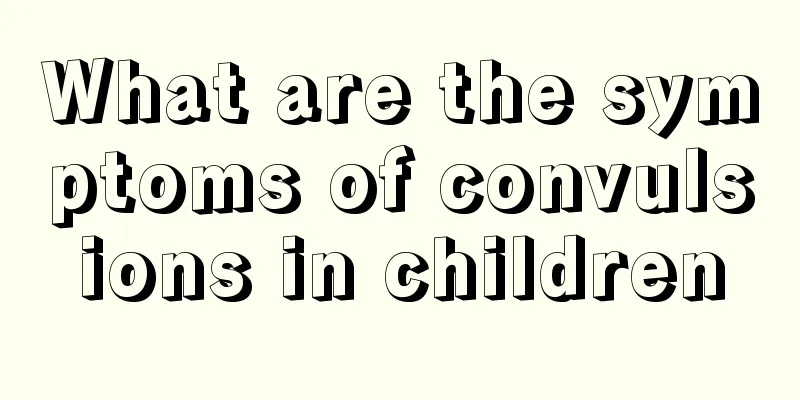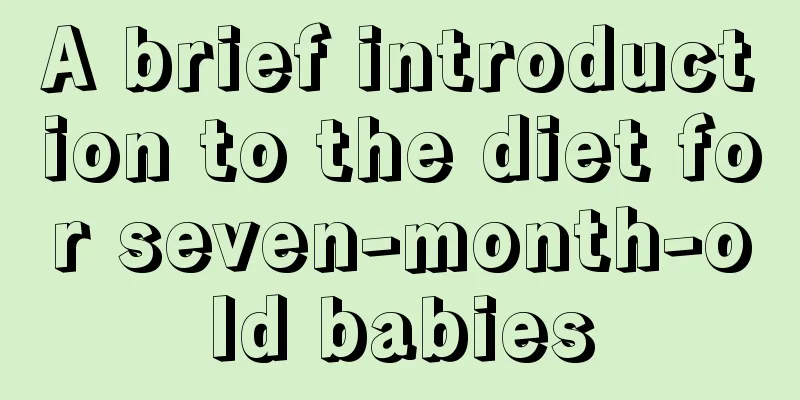Sometimes babies have convulsions
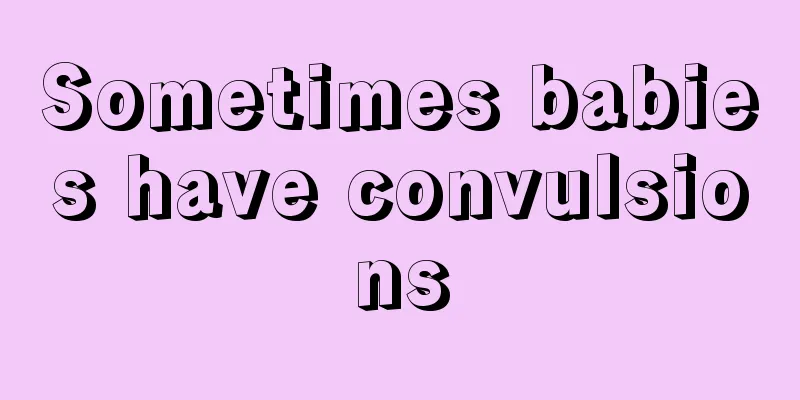
|
Seizures are uncontrolled muscle shaking in the body and are common in young babies. There are many reasons for baby convulsions. It may be caused by a cold, or it may be caused by a lack of certain trace elements in the baby's body. But no matter what the reason is, parents should pay attention to it and seek timely treatment. Here are some possible causes and solutions for your baby's convulsions. 1. Children's fever and convulsions are medically called febrile convulsions. This is mainly due to the imperfect development of the nervous system of infants and young children, such as poor inhibitory function of the cerebral cortex and incomplete formation of the nerve myelin sheath. Once stimulated by external stimuli, the excitement can easily spread and cause convulsions. Generally speaking, infants and young children between 6 months and 4 years old, especially those who often catch colds and fevers, are more likely to suffer from febrile convulsions. Convulsions usually occur when the baby has a high fever, such as a body temperature of 39℃-40℃, and last for a relatively short time, about 2-3 minutes, and generally do not exceed 10 minutes. After the convulsion stopped, the child woke up. 2. Warm water bath: The water temperature should be slightly higher than body temperature. Mainly use it to wash the palms, soles, armpits, popliteal fossa, groin, etc. of the child. However, the time should be short to prevent cold again and aggravate the condition. Warm water bath: The water temperature is about 3-4℃ lower than the sick child's body temperature, and each bath lasts 5-10 minutes. Many parents believe that children should not be bathed when they have a fever. In fact, on the contrary, giving the baby a warm bath can help cool the baby down. A warm bath is suitable for all babies with a fever. 3. EpilepsyEpilepsy usually presents as recurring seizures with brief disturbances in consciousness and sensation. It is mainly caused by the improper development of the child's nervous system, which leads to excessive abnormal discharges in the cerebral cortex due to stimulation. When a pediatric convulsion occurs due to epilepsy, most children will become unconscious, with their eyes closed or half-open with their eyeballs rolled up, their jaws clenched, the corners of their mouth twitching, their head tilted back, their limbs repeatedly flexed and extended, their lips purple, and their body rigid for a dozen seconds to several minutes. |
<<: What to do if a 6-year-old child has red bumps and itchy skin
>>: How to regulate children's spleen and stomach disharmony
Recommend
What should I do if my child keeps coughing? Here are some ways to deal with it!
When a child coughs, parents will be very anxious...
Why does the baby bite his tongue?
The birth of every baby is a great joyous news fo...
What causes dry retching in newborns?
What causes dry retching in newborns? I believe t...
Can children drink lemonade?
There are many things to pay attention to when it...
What to do if a 4-year-old child has a persistent high fever
Fever is one of the illnesses that almost every c...
When is the best season for hernia surgery?
Infants under one year old may be able to heal on...
Can children with rhinitis be cured?
In recent years. The quality of the air has decli...
Why do children get fever easily?
Parents are definitely very concerned about their...
Can babies with eczema not be exposed to the sun?
All parents should know that infant eczema is a c...
Baby farts instead of pooping
Some babies suffer from constipation due to milk ...
Child's stomach twitching
When a child's stomach cramps, it means that ...
Key points for the care of premature babies: these points must be paid attention to
Compared with full-term babies, the care of prema...
What to do if your child has indigestion and vomits
Children do not have the ability to actively cont...
Will eating papaya make children mature early?
Precocious puberty in children is very common now...
Height and weight standard table for 10-year-old girls
Children have calibrated height or weight at diff...
